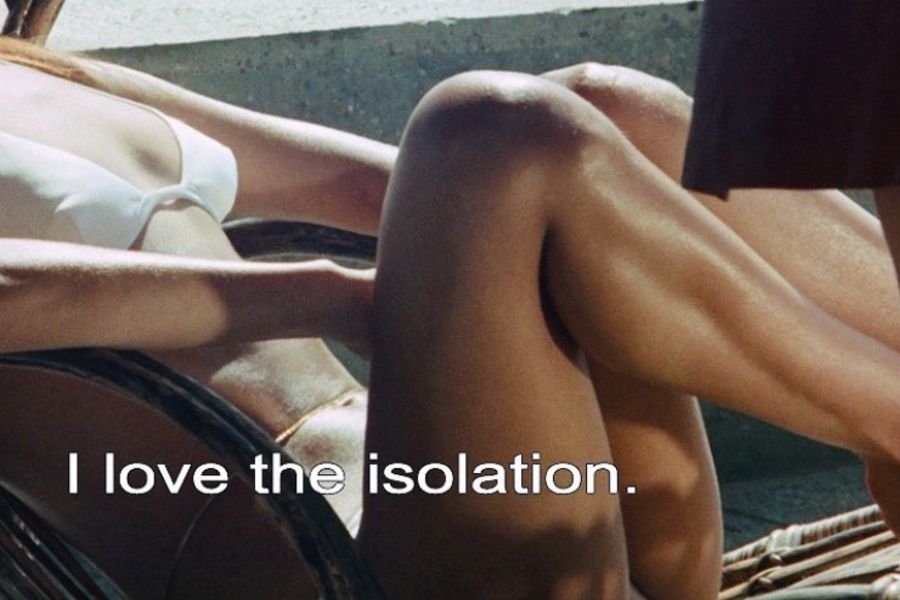
While we have a common goal in the face of the coronavirus crisis, our reactions were always going to be different.
As many of us plan dinner parties as restrictions are eased across RUSSH’s home base, Australia, others (members of team RUSSH included) don’t feel quite ready to reconnect with the outside world.
I am, reluctantly, part of the latter group. As someone who's lucky enough to live with a person they love, in a social sense, my weekends have largely become obligation-free cocoons. Limitations have brought a certain kind of freedom. So when friends began celebrating their right to socialise over the weekend, I felt some shame that I wasn’t motivated to do the same. Until I spoke with the RUSSH team (via our online WFH chat) and realised I wasn’t alone. Of course not.
With that in mind, this week on RUSSH, we're hoping to make space for both sides.
While it’s true that this crisis unites us all, our personal circumstances - associated privileges and hardships - are different.
So are the ways in which we respond to them - not to mention the methods we use to find equilibrium. And that’s okay.
Last week we had the privilege of speaking to someone with unique insight into this subject. Clinical Psychologist Scott Lyons usually lives in New York City, the current face-mask-essential epicentre of the coronavirus crisis. But he found himself in lockdown in Australia as the borders closed. Now treating his clients by correspondence, he has knowledge of individual experiences across countries. And a pertinent message when it comes to looking after your mental health in this time:
You’ve got to know what feels good for you.
"Taking care of ourselves is individual," he says.
"So, if someone asked how do I take care of myself, I would first ask the question, what does taking care of yourself mean to you? And how do you know? What is the self experience, what does it feel like when you’ve been taking care of yourself? Because we need these points of reference in order to work towards."
In Lyons' words, everyone has a stress bandwidth. If you're feeling overwhelmed, despondent, or out of touch, perhaps it's because yours has been reached. Perhaps you're in a caring role (even to friends in need). Perhaps fear of illness or the stress of the unknown is hitting you hard. And you need a little more time to do the things that make you feel good.
If nothing else, we can use this time as a period of careful reintroduction, or subtraction, to better understand what lights us up inside.
While our versions of wellbeing might be different, Dr Lyons has some considerations to keep in mind.
Connect with people in real life if possible
"Leave your phone at home and go for a walk or run with a friend, you don’t need it. Make sure you still practice social distancing of course."
News consumption is based on your capacity to take it in ...
"If you start zoning out, it means you’re done."
If you’re isolating with your partner
"Institute things like time apart. Even if your home is small, design a space that is uniquely yours that you can immediately access. Then set up times you can meet up like date nights, bringing specialness into the relationship so you don’t feel on top of each other all the time."
If you’re isolating with flatmates
"Now more than ever is the time to have clear boundaries and assess and express your particular needs. Doing activities together helps shift the environment and our collective energy, eg yoga etc."
Social media use ...
"Recognise the moment you start feeling overloaded and turn it off."
Daily exercise ...
"As well as meditation and mindfulness, brings more blood flow to prefrontal cortex, helping us with decision making and emotional regulation which can be stressed in this time. Blood circulation reduces inflammation, which can spike during stress periods."
Do not bottle up your emotions ...
"This creates more inflammation in your body, which reduces immune functions. Expressing emotions helps to process what you’re witnessing, allows you to be more conscious, make better decisions, and have better relationships. Bottling up usually leads to an explosion, sometimes onto someone else. Find the best listeners in your life. If you can’t access appropriate friends or family, seek out a licensed professional or mental health expert. Seek out online support groups, government resources for mental health are readily available online or via mobile. This is an imperative time to address mental health."
Image: Vampyros Lesbos, 1971, film still, via @ingridkesa



